Precarious Belongings
Asian Cultural Studies: Transnational and Dialogic Approaches
The series advances transnational intellectual dialogue over diverse issues that are shared in various Asian countries and cities.
Series Editor:
Koichi Iwabuchi, Professor of Media and Cultural Studies and Director of Monash Asia Institute, Monash University, Australia
Editorial Collective:
Ien Ang (University of Western Sydney)
Chris Berry (Kings College London)
John Erni (Hong Kong Baptist University)
Daniel Goh (National University of Singapore)
Ariel Heryanto (Australian National University)
Kim Hyun Mee (Yonsei University)
Titles in the Series:
Contemporary Culture and Media in Asia, edited by Daniel Black, Olivia Khoo, and Koichi Iwabuchi
Transnational Memory and Popular Culture in East and Southeast Asia: Amnesia, Nostalgia and Heritage, by Liew Kai Khiun
Multiculturalism in East Asia: A Transnational Exploration of Japan, South Korea and Taiwan, edited by Koichi Iwabuchi, Hyun Mee Kim, and Hsiao-Chuan Hsia
Precarious Belongings: Affect and Nationalism in Asia, edited by Chih-ming Wang and Daniel PS Goh
Islamic Modernities in Southeast Asia: Exploring Indonesian Popular and Visual Culture, by Leonie Schmidt (forthcoming)
Cultural Policy and East Asian Rivalry: The Hong Kong Gaming Industry, by Anthony Y. H. Fung (forthcoming)
Precarious Belongings
Affect and Nationalism in Asia
Edited by
Chih-ming Wang
and
Daniel PS Goh

Published by Rowman & Littlefield International Ltd
Unit A, Whitacre Mews, 26-34 Stannary Street, London SE11 4AB
www.rowmaninternational.com
Rowman & Littlefield International Ltd.is an affiliate of Rowman & Littlefield
4501 Forbes Boulevard, Suite 200, Lanham, Maryland 20706, USA
With additional offices in Boulder, New York, Toronto (Canada), and Plymouth (UK)
www.rowman.com
Selection and editorial matter 2017 Chih-ming Wang and Daniel PS Goh
Copyright in individual chapters is held by the respective chapter authors.
All rights reserved. No part of this book may be reproduced in any form or by any electronic or mechanical means, including information storage and retrieval systems, without written permission from the publisher, except by a reviewer who may quote passages in a review.
British Library Cataloguing in Publication Data
A catalogue record for this book is available from the British Library
ISBN: HB: 978-1-7866-0224-4
Library of Congress Cataloging-in-Publication Data Is Available
ISBN: 978-1-78660-224-4 (cloth : alk. paper)
ISBN: 978-1-78660-226-8 (electronic)
 The paper used in this publication meets the minimum requirements of American National Standard for Information SciencesPermanence of Paper for Printed Library Materials, ANSI/NISO Z39.48-1992.
The paper used in this publication meets the minimum requirements of American National Standard for Information SciencesPermanence of Paper for Printed Library Materials, ANSI/NISO Z39.48-1992.
Printed in the United States of America
Contents
Chih-ming Wang
Adrian Vickers
Kwai-Cheung Lo
Koichi Iwabuchi
Vivian Shaw
Hyunjung Lee
Tina S. Clemente
Carol Chan
Hyun Mee Kim
Selvaraj Velayutham
Iam-Chong Ip
Jack Linchuan Qiu
Ien Ang
Daniel PS Goh
Chih-ming Wang
IN THE NAME OF LOVE
Since 1995, perhaps with the first TV program called Love of Taiwan (Taiwan nian zhenqin), which showcased the everyday lives of the people of Taiwan and ran for fifteen years at the heat of the nativization (bentuhua) movement, love has emerged to be the most powerful, if not dominant, discourse in the island nation shaped by a sharp sense of isolation from the international community since the 1970s and the fear of a rising China claiming Taiwan to be its inseparable territory.independent new nation shaping up from a Han-Taiwanese identity, is often indifferent to the harm it has levied, intentionally or not, on the aboriginal and migrant communities in Taiwan through the settler colonial history and racist exclusionist policies, and on those mainland Chinese citizensnow caricatured as loud, unruly tourists throwing their money and swaggering aroundwho earnestly, though perhaps naively, regard Taiwanese as their fellow countrymen but are rejected as uncivil subjects ruled by an authoritarian state. Love, as brokenhearted lovers know best, is what hurts the most.
In many ways, there is nothing surprising about Taiwans affective nationalism. The late Benedict Anderson (: 368) reminds us that such goodness of nationalism as fraternity, unity, and purity cannot be profitably discarded.
However, fraternity, unity, and purityoften bounded with a sense of possessive individualism and built on the idea of fictive ethnicitythat have sustained imagined communities are oftentimes the reasons why mass killing is justified, discrimination tolerated, and exclusion institutionalized. Political theorists of nationalism (Balibar and Wallerstein : 100) points out, whether imagined as a space, body, or house, the nation requires the proximity of strangers within that space, regardless of how one receives the stranger, either as a threat or as a blessing. No matter which side you are on, the host or the stranger, belonging to the nation is a difficult, precarious process of negotiation. In this way, nations not only command great emotions but also embody affectsunconscious experience of intensitythat could move individuals to feel emotions that may seem inherently theirs but are, in fact, beyond them. By teaching us (who) to love and hate, the nation is, thus, formed and operates in the transmission of affect (Brennan 2004), in the constant negotiation between ones devotion to and the others rejection by it. It is our affective devotion to the nation as both the object (of possession) and the subject (I am one with) that makes nationalism, with the state at its command, at once powerful and yet dangerous, uniting but also divisive.
This bookoriginally presented as part of the International Workshop on Nation, Affect, and Aversion in a Post-Imagined-Community Asia held in 2015 in Taipei, Taiwanis an interdisciplinary endeavor to contextualize and theorize the loadedness of national feelings in Asia. Departing from Andersons work that is more concerned with explaining the modus operandi of nationalism as a state ideology and mobile practice, this book is more interested in exploring how affects constitute the nation and operate in it. Here, we take affects to mean a wide range of emotions and feelingslove, hate, anger, disgrace, and so onthat are not just personal but rather social in origin and political in character to register the complex interactions between the affective, the social, and the political. Affects represent for us not merely sensational responses but more importantly structures of thinking that can shed critical light on how nationalism works affectively in the nexus of globalization and postcoloniality. Although we understand and appreciate the distinctions between affect, emotion, and feeling made by Brian Massumi (), and others, in this book we do not attempt to distinguish these terms as separated, mutually exclusive entities, for our aim is more about apprehending how nationalism articulates itself affectively into the social, political, and cultural realms than labeling various shades of affective responses to it.
Consisting of twelve chapters each dealing with complex affects emanating from problematic assertions of nationhood in Asia, this book seeks to understand what is at stake when national feelings surge in a world increasingly made up of migration and hybridity in which competition for resources and economic opportunities is also most intense. It especially looks at how contemporary Asian states negotiated with the history of colonialism and the Attentive to how nations are fractured and expanded by forces of economy, migration, and diasporic affiliations across space and time, it studies and analyzes how to understand the nation and the affects it commands in the multicultural, transnational, and postcolonial settings. At the time when love of the nation has caused more injury than compassion out of fear and anger, we wonder, isnt it time to recast the nation for more progressive ends, or to divest ourselves from the nation and reimagine communities of another kind?



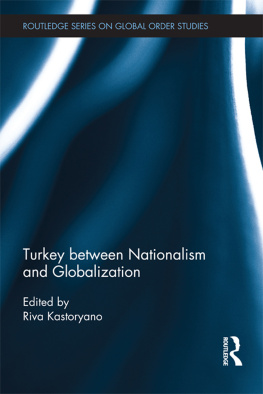
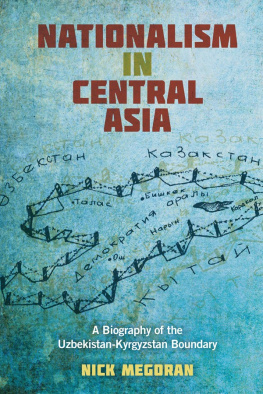
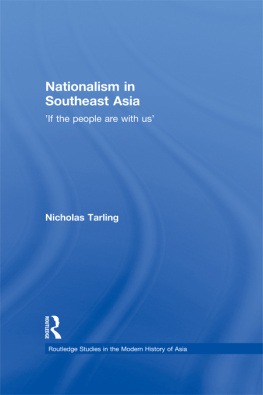
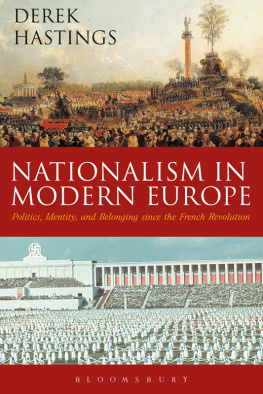
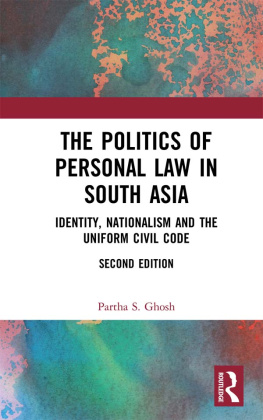
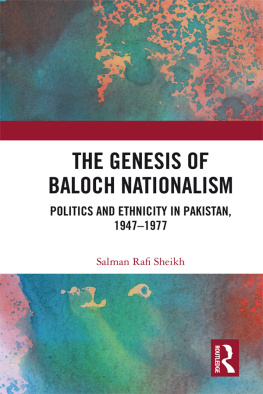
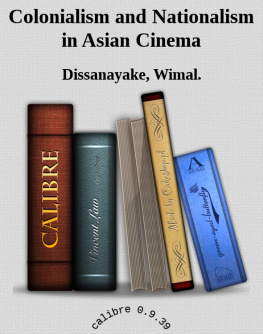

 The paper used in this publication meets the minimum requirements of American National Standard for Information SciencesPermanence of Paper for Printed Library Materials, ANSI/NISO Z39.48-1992.
The paper used in this publication meets the minimum requirements of American National Standard for Information SciencesPermanence of Paper for Printed Library Materials, ANSI/NISO Z39.48-1992.